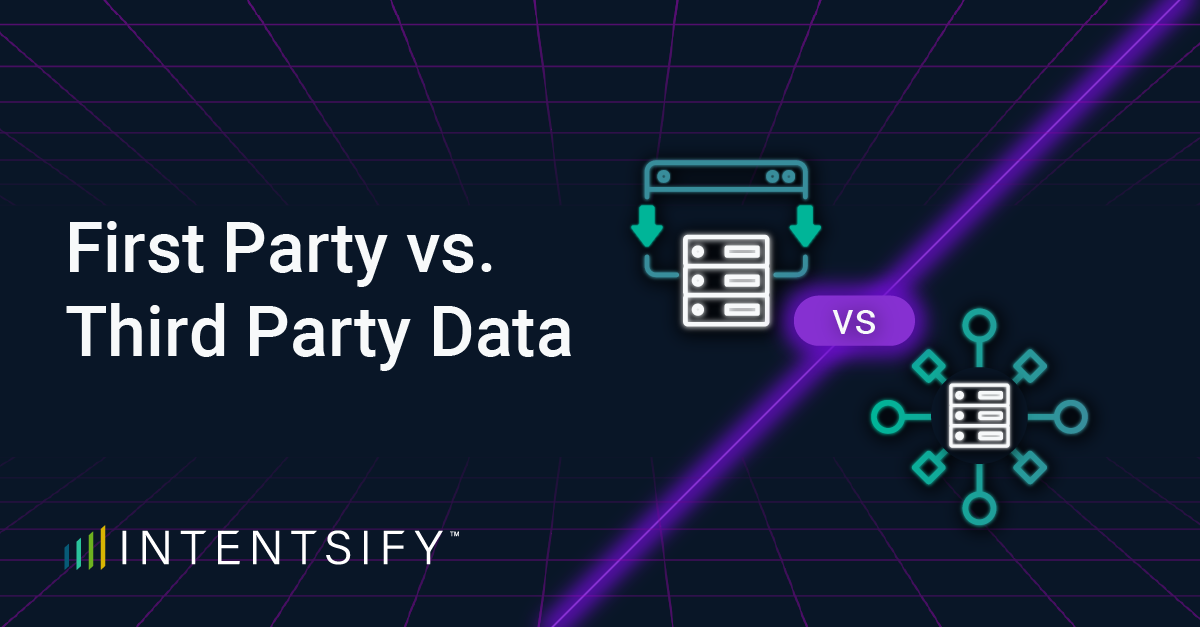Online tracking is an indispensable tool for B2B marketers to collect and analyze how their target audiences navigate websites, applications, and online platforms. The insights help them understand prospects’ interests, preferences, buying behaviors, and intent to create targeted advertising campaigns for a personalized, converting customer experience.
Cookies are the most widely used online tracking technology. However, the “cookie apocalypse” is upon us — Google announced its plan to deprecate third-party cookies in 2020 and has started blocking them in Chrome on January 4, 2024, aiming to end third-party cookies for all Chrome users by Q3 2024.
What do the changes mean for B2B marketers? Let’s explore what cookies are, how marketers use them, the pros and cons of this tracking method, and how to navigate the upcoming changes in the third-party cookie landscape.
The role of cookies in advertising
Cookies are small text files stored in a user’s web browser when they visit a website. The files contain data about the user’s online activities, including login credentials, site preferences, shopping cart contents, browsing history, etc., allowing websites to recognize and remember users to deliver a personalized browsing experience.
Netscape introduced cookies in 1994 to enable stateful sessions for web applications and maintain user preferences. Eventually, marketers and advertisers started using cookies to track users across the internet to deliver targeted advertising.
The practice raised online privacy concerns, and regulations like the EU’s General Data Protection Regulation (GDPR) and the California Consumer Privacy Act (CCPA) were introduced to address these issues. To navigate the shifting cookies landscape, we must understand the differences between first- and third-party cookies.
What are first-party cookies?
First-party cookies belong to a website’s owner and are created by the host domain. They enhance a session’s usability and functionality by enabling websites to remember user preferences, streamline the login process, and deliver a personalized browsing experience. The upcoming cookie deprecation won’t affect these cookies.
For example, a website may use first-party cookies to remember the content a user has visited and their interactions with the site (e.g., language selection, shopping cart content) to enhance the customer experience. The cookies can also store information like login credentials to verify a user’s identity and protect against unauthorized access.
What are third-party cookies?
Third-party cookies are created by someone other than the website owner (e.g., an ad tech platform) to gather information about user profiles and record user activities across the web. Advertisers and analytics firms can place cookies on a browser via a tracking pixel or ad to support targeted advertising, analytics, and personalization.
When a user first visits a website with content or services from a third-party domain, third-party cookies associated with the domain are set within their browser. As the user continues to browse the web, the cookies send data about the user’s behaviors and preferences back to the cookie owner, who may use the information to create user profiles and deliver targeted ads.
Third-party cookies in advertising
Besides marketing personalization, advertising networks and ad tech companies use third-party cookies to support retargeting campaigns. For example, they may display ads of products users have viewed on different sites (remember those shoes that follow you all over the web?)
Analytics platforms like Google Analytics use third-party cookies to track user interactions and gather data on website traffic, user demographics, and behaviors to help website owners understand how visitors engage with their content to improve performance and user experience.
Meanwhile, social media plugins embedded in websites use third-party cookies to record visitors’ interactions with social media content (e.g., likes and shares). Social media platforms may use the data to understand user behaviors and preferences to inform segmentation and targeting strategies.
The pros and cons of third-party cookies
Third-party cookies help advertisers deliver targeted ads to drive engagement and conversions. They also allow different websites to provide seamless and personalized browsing experiences by remembering user preferences and settings. Advertisers may use the data to optimize their ad campaigns, improve targeting, and increase the cost-efficiency of their marketing efforts by delivering the right content to the right people.
However, third-party cookies’ ability to track users’ online activities without explicit consent raises privacy concerns. The process may collect sensitive personal information and create detailed profiles without users’ knowledge. These cookies also pose security risks since malicious actors could exploit them for identity theft, fraud, or unauthorized access to sensitive data.
The evolving third-party cookie landscape
Cookie usage ran rampant in the early 2000s, leading to significant privacy issues. The Cookie Law was introduced in 2011, making it illegal to place third-party cookies on a user’s device without consent. The third-party cookie landscape continues to evolve alongside new technologies and regulations.
Apple’s Safari and Mozilla’s Firefox were the first major browsers to block third-party cookies by default — limiting cross-site tracking to enhance user privacy. Google announced its cookie deprecation plan in 2020 and launched the Privacy Sandbox initiative to develop privacy-preserving alternatives to third-party cookies.
Meanwhile, more legislation has been introduced to address privacy issues. The GDPR requires explicit consent from users to process their personal data, leading to changes in cookie consent mechanisms and data handling practices. The CCPA requires businesses to provide transparency and choice in collecting and using personal information. Many states have modeled their privacy laws after the CCPA to protect consumer data.
The rise of third-party cookie alternatives
The good news is that third-party cookies aren’t the be-all-end-all in online tracking. There are other (better) ways to gain insights about your audience, prospects, and customers.
Businesses should focus on first-party data collected directly from their websites or apps. These include contact information, purchase history, and website activities. You may also use “zero-party” or permission-based data collected via forms, surveys, and polls. For example, you may ask visitors to share their information in exchange for valuable content (e.g., ebooks and webinars) or free trials.
Moreover, you may expand your intent signal coverage by partnering with intent data vendors like Intensify. Intentsify uses alternative identifiers to monitor target-buyer research activities and buying behaviors. Then, behavioral data is transformed from disparate sources like IP addresses, mobile ad IDs, and hashed email addresses to provide actionable account and buying group intelligence.
You may access these insights to gain high-quality buyer-intent intelligence and inform your full-funnel intent activation tactics, such as lead generation and targeted advertising. Don’t forget to ask your marketing vendors how they are preparing for the deprecation of third-party cookies.
Future proof your digital advertising
Audience targeting can be challenging for B2B marketers. With third-party cookie deprecation on the horizon, you need better solutions to deliver the right message to the right people at the right time. Intent data will help expand your reach, accelerate your pipeline, augment personalized marketing, and drive conversions.
Intensify uses AI-enabled technologies to synthesize multi-sourced intent signals to identify in-market accounts, their research stages, and topics of interest. You can leverage the insights to deliver highly targeted and relevant content and offers to engage your audience and stay relevant in the cookie-less world.
Learn more about the impending cookie apocalypse and how we can help you gain precise buyer insights.







